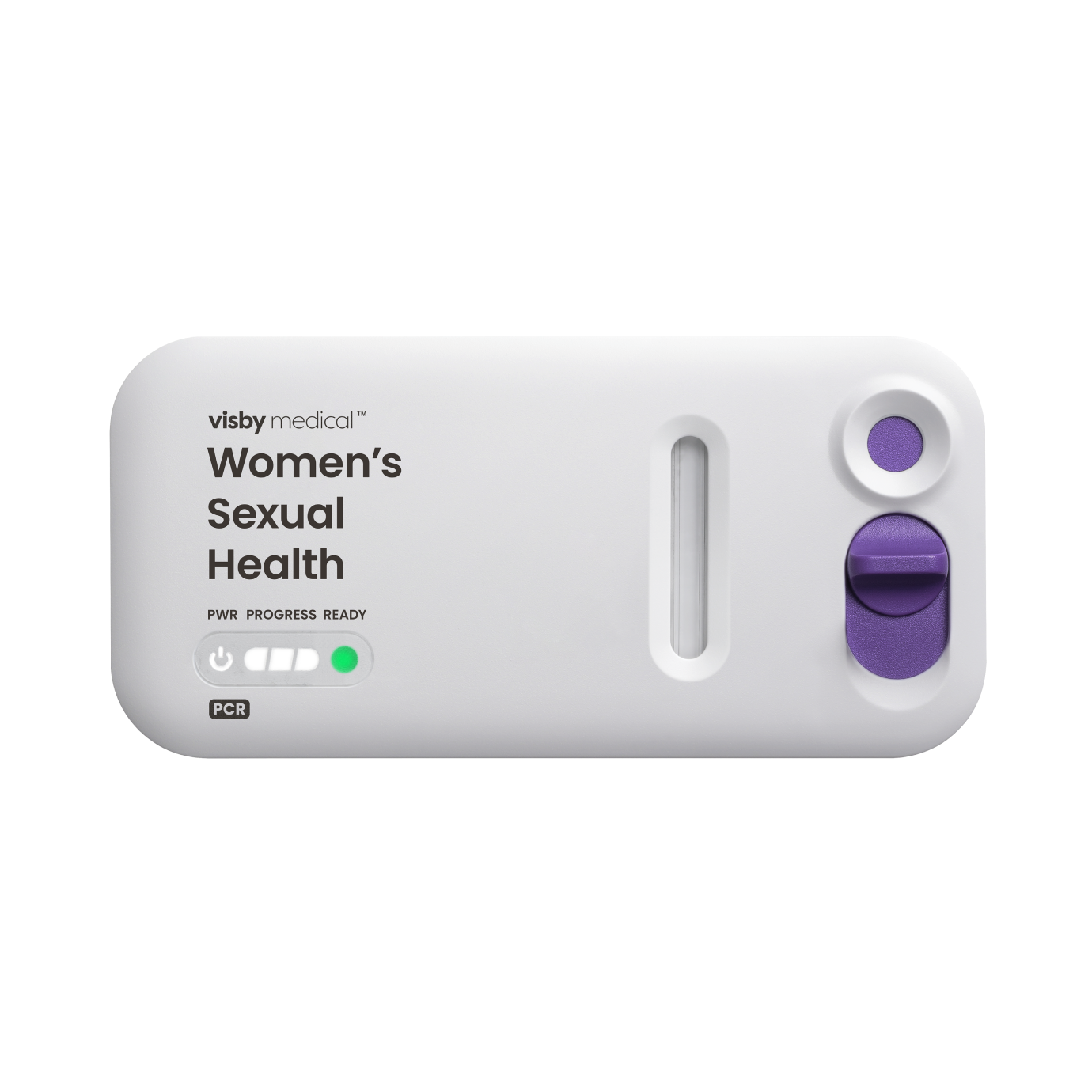
Medically Reviewed By: Jillian Foglesong, MD, FAAFP
Testosterone is an important steroid hormone in the body that affects multiple body functions. Testosterone is primarily made in the testicles of men and people assigned male at birth (AMAB) but is also made in the ovaries of women and people assigned female at birth (AFAB).1 Testosterone is also made in the adrenal glands though in much smaller amounts.2
Throughout the lifespan, it is normal to have fluctuations in natural testosterone levels by age. If you have questions about normal testosterone levels by age, we’ll be covering this topic today as well as discussing more about factors that can influence your testosterone levels.
What Level of Testosterone Is Normal?
The level of testosterone varies with age. The following table demonstrates the normal testosterone levels by age in men and people AMAB.2,7–10
| Age | Total Testosterone (ng/dL) | Free Testosterone (pg/mL) |
|---|---|---|
| Pre-puberty | <30 | 1–11 |
| 20–30 | 413–1000 | 9.3–26.5 |
| 30–40 | 352–1000 | 8.7–25.1 |
| 40–50 | 252–916 | 5.3–26.3 |
| 50–60 | 215–878 | 4.2–22.2 |
| 60–70 | 196–859 | 3.7–18.9 |
| 70+ | 156–819 | 2.2–14.7 |
In females and people AFAB, normal testosterone levels are as follows.11
| Age | Total Testosterone (ng/dL) |
|---|---|
| 19–49 | 8–48 |
| 50–69 | 2–41 |
| 70+ | <2 |
Most lab results are reported with a normal reference range. This range may vary from lab to lab, and results may vary based on the method used for testing. Reference ranges for testosterone are based on early morning levels, so for the most accurate information, it is best to test in the morning.12
How Does Testosterone Change With Age?
The hypothalamus releases GnRH as a pulse every few hours. FSH and LH levels spike during puberty, peaking in the 20s and then gradually decreasing over the following decades.1 The gradual decrease in testosterone with aging is believed to be due to decreases in testicular function as well as changes in the hypothalamus region of the brain.4
Starting around age 30, testosterone levels drop around 1% per year.5 After age 80, the decline is much more rapid.6 Testosterone usually peaks around 8:00 AM. The height of the peak in testosterone also decreases with age.
What Causes Abnormal Testosterone Levels?
Low levels of testosterone in your blood can have many potential causes. This common condition affects around 2% of men and that number increases with age. By age 80, the number is as high as 50%.13 Risk factors for low testosterone include:14
- Age
- Type 2 Diabetes (worse if uncontrolled)
- Overweight/Obesity
- Obstructive sleep apnea (worse if uncontrolled)
- HIV/AIDS
- Kidney problems
- Liver problems
- Heart disease
Low testosterone can be due to conditions that are present at birth because of testicular or genetic problems, even if it may not become apparent until puberty. It can also be caused by damage to the testicles or brain. Any medication that negatively impacts testicular function, such as steroids or chemotherapy, can also negatively impact testosterone levels.14
Other acquired conditions that can cause low testosterone include:14
- Low pituitary function
- Increased prolactin production
- Too much iron in your body
- Head or brain injuries
- Conditions that cause abnormal cortisol levels, such as Cushing’s syndrome
- Severely low cholesterol levels
Long-Term Health Impacts of Low Testosterone
Low testosterone can cause significant health impacts, especially if left untreated. Testosterone may play a role in cardiovascular health.15 Patients with low testosterone are at an increased risk of developing type 2 diabetes and metabolic syndrome. The exact mechanism for how testosterone impacts cardiovascular health is not well understood.
Low testosterone can also increase the risk of osteoporosis, which can increase the risk of fractures of the back and hips with even minor trauma.16 Since testosterone plays a vital role in muscle mass development, it’s not surprising that low testosterone can lead to decreasing strength and muscle mass.
Testosterone also affects how fat is distributed throughout the body. When testosterone levels are low, fat tends to accumulate around the abdomen which may be part of the reason for the increased risk of metabolic syndrome.16
Men and people AMAB with low testosterone have an increased risk of depression and mood swings as well as a decrease in cognitive function which results in problems with memory and attention. The ability to plan and execute plans can also be affected.17
Decreased libido and problems with erectile function are among the more common and noticed side effects of low testosterone. Along with these symptoms, fertility issues are more common as well.17
What Are the Symptoms of Low Testosterone?
With all of the potential long-term impacts of low testosterone levels, you may be wondering how you know whether your testosterone is low. Low testosterone can have many symptoms, though these symptoms can overlap with other conditions. Some of the potential symptoms associated with low testosterone include:18
- Excessive fatigue
- Decreased libido and trouble getting or maintaining an erection
- Mood changes such as depression, irritability, or mood swings
- Loss of muscle or strength
- Weight gain (or loss due to muscle loss)
- Increased fat, especially around the abdomen
- Loss of bone density and osteoporosis
- Infertility
- Abnormal growth of breast tissue (gynecomastia)
- Hair loss (male pattern baldness)
This list is not exhaustive and other symptoms can occur. Since symptoms of low testosterone overlap with other conditions, it can be difficult to determine what types of testing are going to help you discover the cause of symptoms. If you have concerns about your symptoms, you may want to discuss with your healthcare provider whether testosterone or other testing is right for you.
How Is Low Testosterone Treated?
Low testosterone is frequently treated with testosterone replacement therapy (TRT). TRT is recommended in men with persistently low testosterone levels and symptoms of low testosterone.19 Currently, there is no recommendation to routinely test people who do not have symptoms of low testosterone and no recommendation to treat people who have low serum testosterone without symptoms.
TRT may be administered in several forms, including:19
- Gel
- Cream
- Injection
- Pellets inserted under the skin
- Oral pills
- Patches
Testosterone therapy has several risks associated with it. Prior to starting therapy, it’s important to discuss both the potential benefits as well as the risks of treatment. Some of the risks associated with TRT include:20
- Increased risk of heart attack or stroke (especially if you already have cardiovascular disease)
- Enlarged prostate
- Possible increased risk of prostate cancer
- Increased risk of too many red blood cells which can lead to clots
- Worsening sleep apnea
- Acne
- Breast enlargement
- Liver damage
Your healthcare provider can discuss risks that are specific to your individual health. Because of the potential risks, it is important not to start TRT without talking to your healthcare provider.
Learn More About Your Hormone Levels With Everlywell
Testosterone levels naturally fluctuate with age. There are many reasons why testosterone levels may be low, and low testosterone can have significant impacts on quality of life affecting mood, fertility, energy levels, and sexual function.
Checking your testosterone and other hormone levels may provide you with valuable information about your health. If you think that low testosterone may be the cause of symptoms that you’re experiencing or if you just want to know about your levels of this important hormone, Everlywell has you covered. Our Men’s Health Test can give you the levels of four important biomarkers, including testosterone, with a single saliva sample.
If you want more information, you can also schedule a men’s health appointment online with Everlywell. Our certified healthcare providers can give you the guidance you need today from the comfort of your own home with a discreet telehealth appointment. Everlywell provides healthcare from the comfort of home.
References
- Nassar GN, Leslie SW. Physiology, testosterone. StatPearls. Published January 2, 2023. Accessed February 25, 2025. https://www.ncbi.nlm.nih.gov/books/NBK526128/
- Testosterone, aging, and the mind. Harvard Health. Published January 1, 2008. Accessed February 25, 2025. https://www.health.harvard.edu/newsletter_article/testosterone_aging_and_the_mind
- Ahern T, Wu FCW. New horizons in testosterone and the ageing male. Age Ageing. 2015;44(2):188–195. doi:10.1093/ageing/afv007. https://pubmed.ncbi.nlm.nih.gov/25666224/
- The “male menopause.” National Health Services. Published February 20, 2025. Accessed February 25, 2025. https://www.nhs.uk/conditions/male-menopause/
- Approach to older males with low testosterone. UpToDate. Accessed February 25, 2025. https://www.uptodate.com/contents/approach-to-older-males-with-low-testosterone
- Barone B, Napolitano L, Abate M, et al. The role of testosterone in the elderly: What do we know? Int J Mol Sci. 2022;23(7):3535. doi:10.3390/ijms23073535. https://pubmed.ncbi.nlm.nih.gov/35408895/
- Traustadóttir T, Harman SM, Tsitouras P, et al. Long-term testosterone supplementation in older men attenuates age-related decline in aerobic capacity. J Clin Endocrinol Metab. 2018;103(8):2861–2869. doi:10.1210/jc.2017-01902. https://pubmed.ncbi.nlm.nih.gov/29846604/
- Cohen J, Nassau DE, Patel P, Ramasamy R. Low testosterone in adolescents & young adults. Front Endocrinol. 2020;10:916. doi:10.3389/fendo.2019.00916. https://pubmed.ncbi.nlm.nih.gov/32063884/
- Kaplowitz PB. Precocious puberty workup: approach considerations, laboratory studies, imaging studies. Medscape Reference. Accessed February 25, 2025. https://emedicine.medscape.com/article/924002-workup
- Braunstein GD, Reitz RE, Buch A, Schnell D, Caulfield MP. Testosterone reference ranges in normally cycling healthy premenopausal women. J Sex Med. 2011;8(10):2924–2934. doi:10.1111/j.1743-6109.2011.02380.x. https://pubmed.ncbi.nlm.nih.gov/21771278/
- Pathology Handbook. University of Michigan. Accessed February 25, 2025. https://www.pathology.med.umich.edu/handbook/
- Dettorre G. What causes low testosterone? Richmond University Medical Center. Published August 7, 2024. Accessed February 25, 2025. https://www.rumcsi.org/news/what-causes-low-testosterone/
- Low testosterone (Male hypogonadism). Cleveland Clinic. Published February 7, 2025. Accessed February 24, 2025. https://my.clevelandclinic.org/health/diseases/15603-low-testosterone-male-hypogonadism
- Jones TH. Testosterone deficiency: a risk factor for cardiovascular disease? Trends Endocrinol Metab. 2010;21(8):496–503. doi:10.1016/j.tem.2010.03.002. https://pubmed.ncbi.nlm.nih.gov/20381374/
- Baxter R. What are the long-term effects of untreated low testosterone in men? ISSM. Published July 17, 2024. Accessed February 25, 2025. https://www.issm.info/sexual-health-qa/what-are-the-long-term-effects-of-untreated-low-testosterone-in-men
- Hua JT, Hildreth KL, Pelak VS. Effects of testosterone therapy on cognitive function in aging: A systematic review. Cogn Behav Neurol. 2016;29(3):122–138. doi:10.1097/WNN.0000000000000104.
- Sizar O, Schwartz J, Leslie S. Male hypogonadism: Treatment & management. StatPearls. Published February 25, 2024. Accessed February 24, 2025. https://www.ncbi.nlm.nih.gov/books/NBK532933/
- Heidelbaugh JJ, Belakovskiy A. Testosterone replacement therapy for male hypogonadism. Am Fam Physician. Published June 15, 2024.
- Ramasamy R, Osterberg EC, Bernie A. Risks of testosterone replacement therapy in men. Indian J Urol. 2014;30(1):2–7. doi:10.4103/0970-1591.124197. https://pubmed.ncbi.nlm.nih.gov/24497632/
- Testosterone. Cleveland Clinic. Published February 18, 2025. Accessed February 24, 2025. https://my.clevelandclinic.org/health/articles/24101-testosterone
Spotlight on
February is Cancer Prevention Month

86% of cancers aren't caught by recommended screenings. See what they're missing with a single blood draw.
Save $100 now
Explore Everlywell









